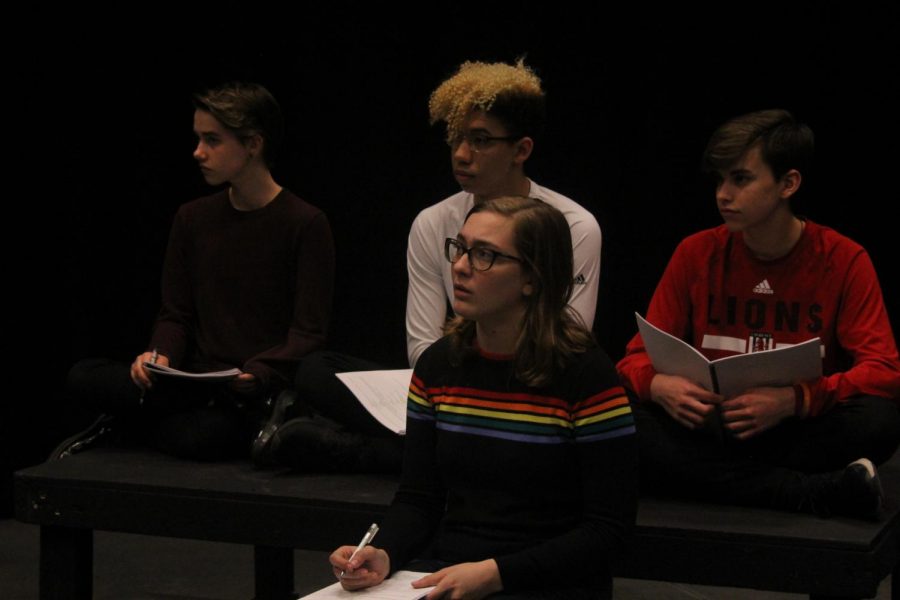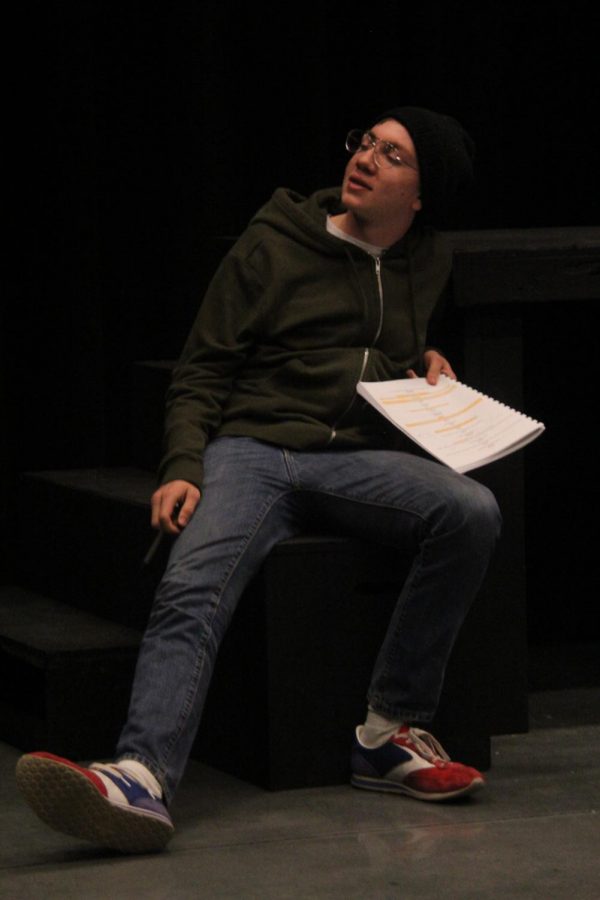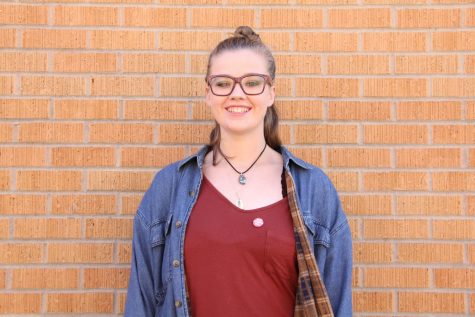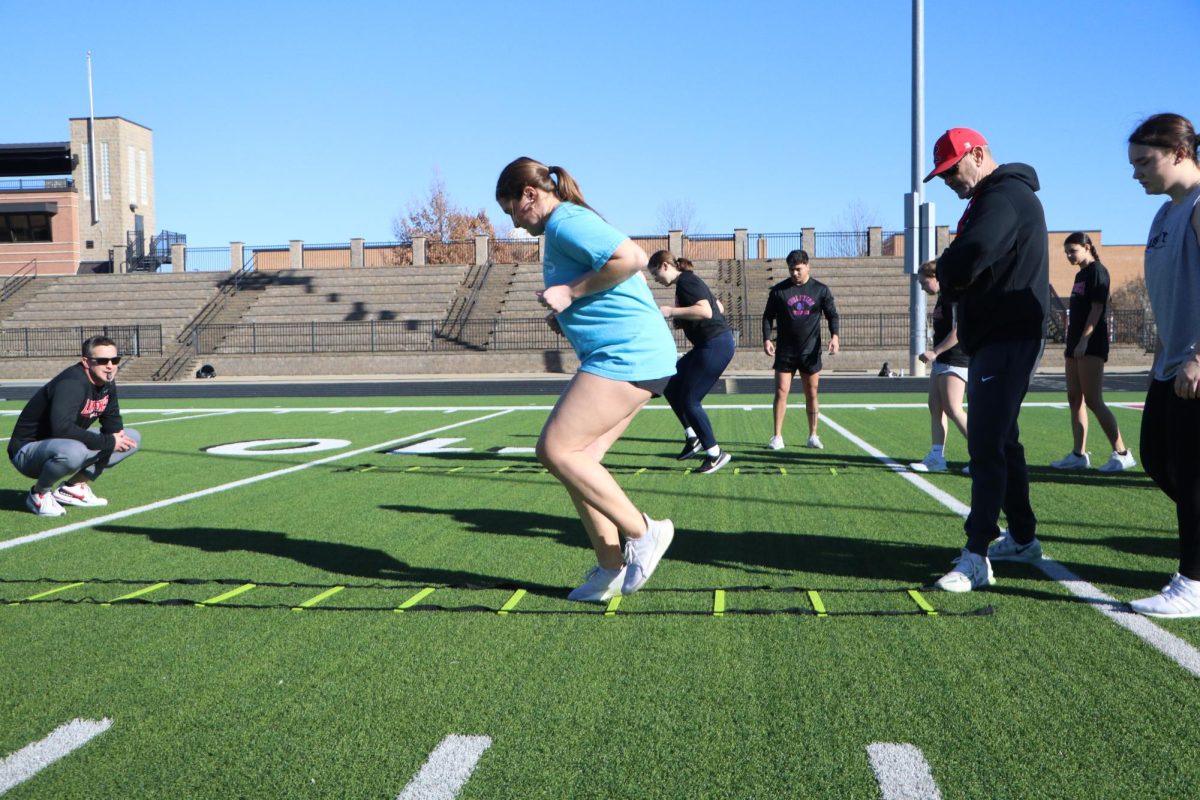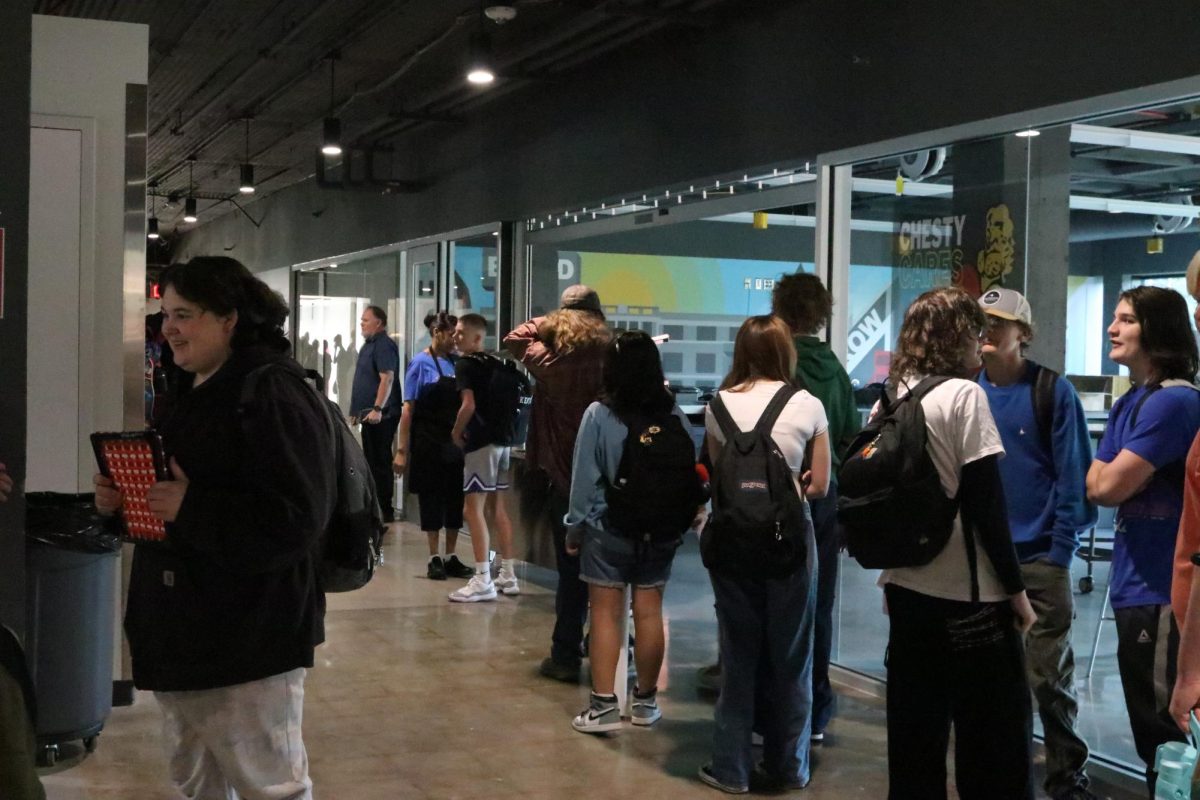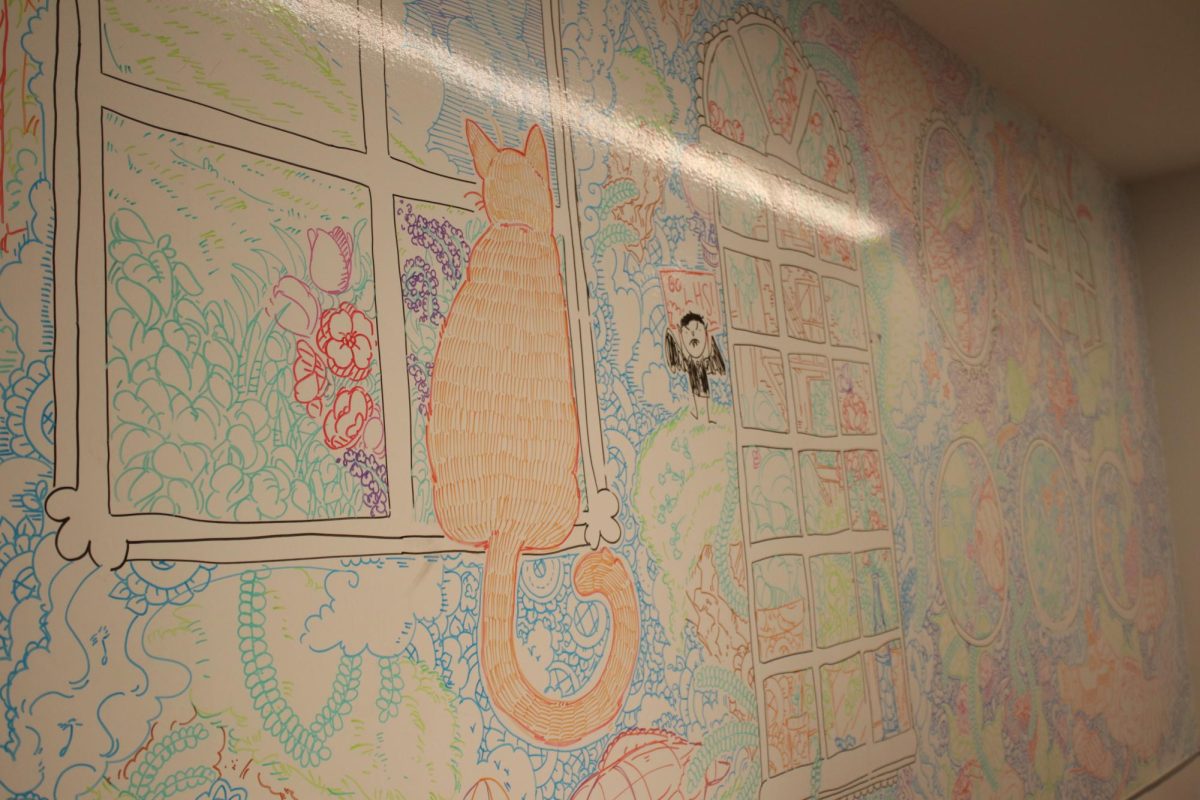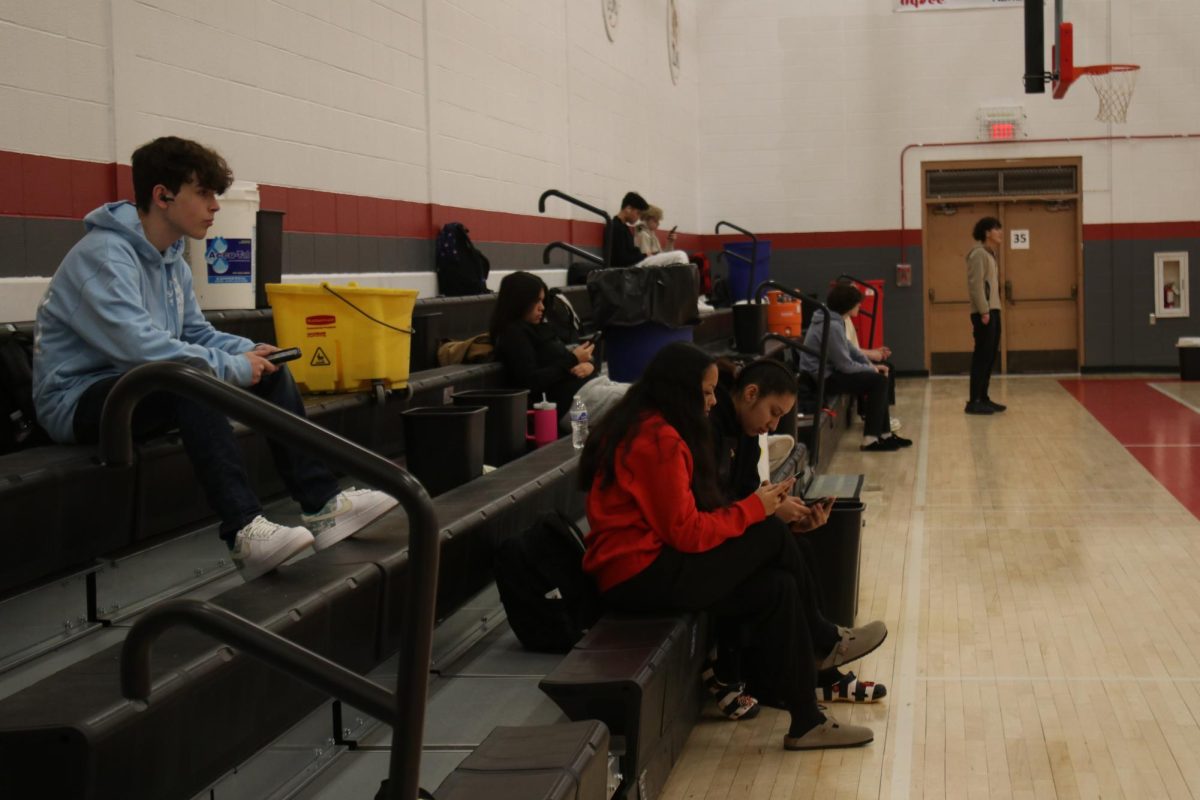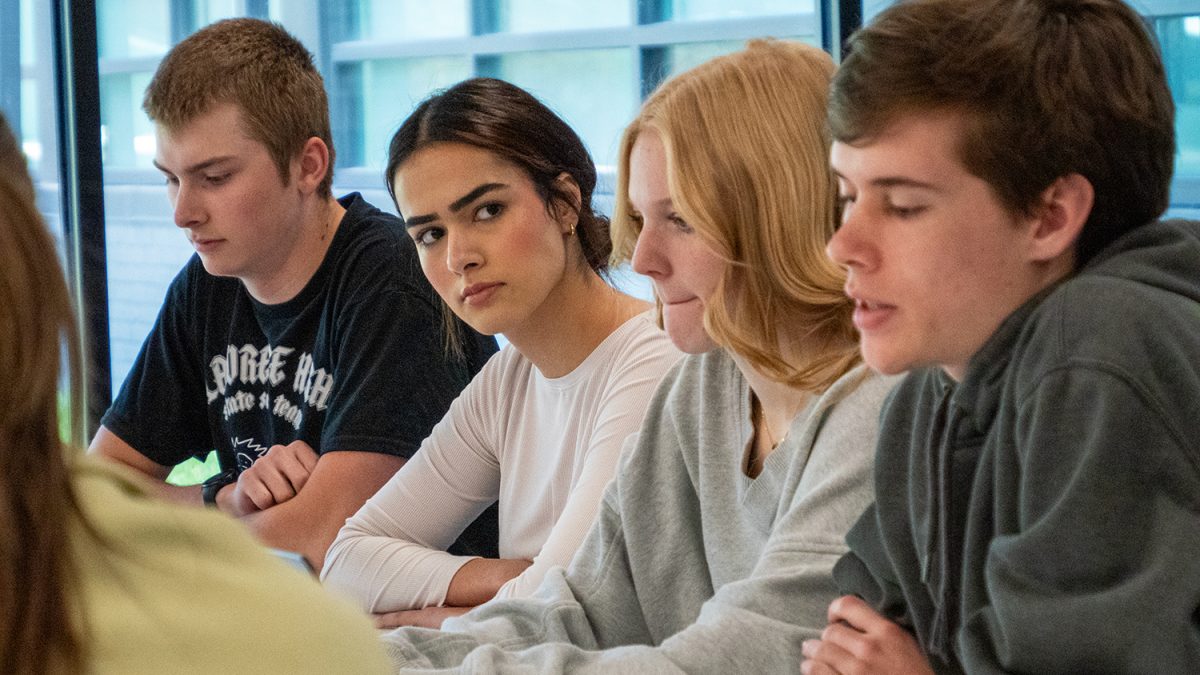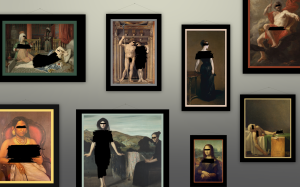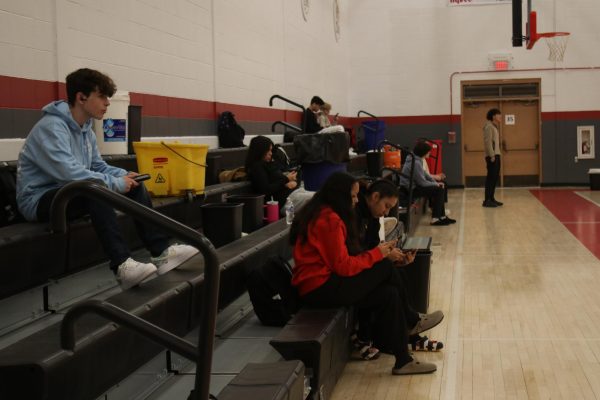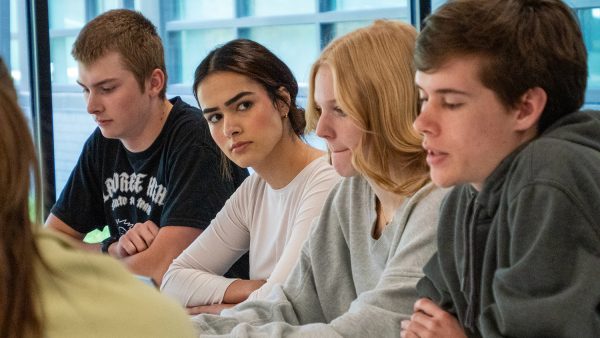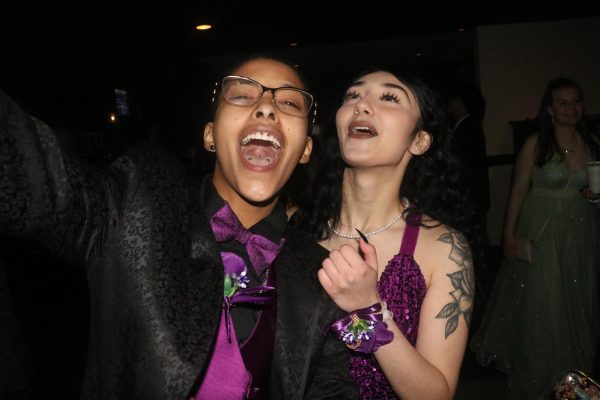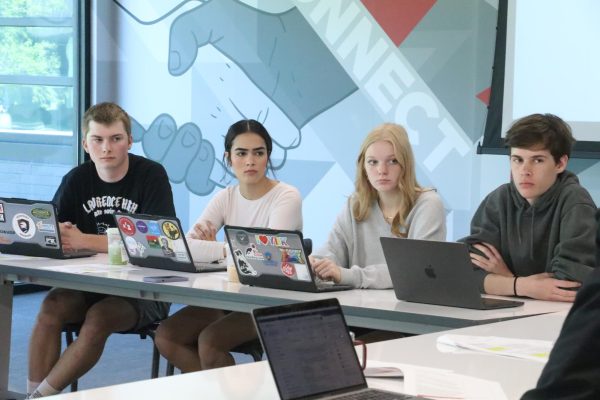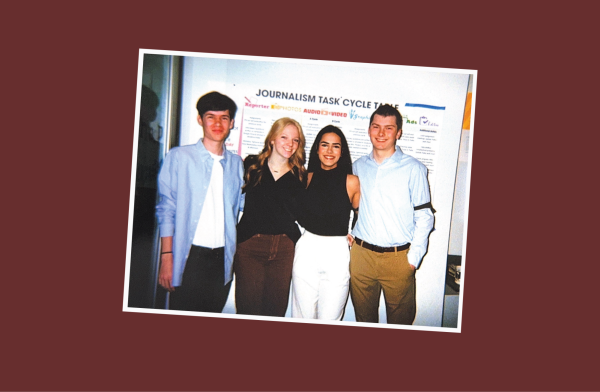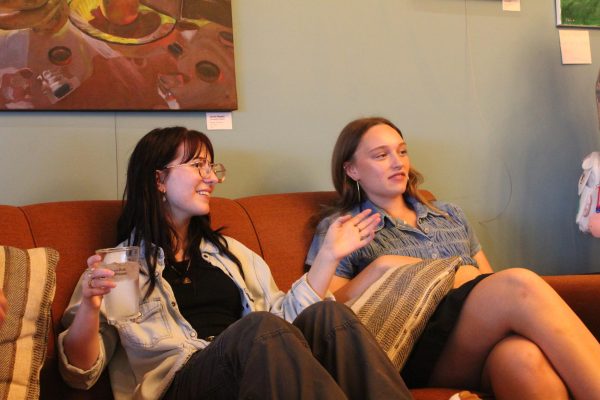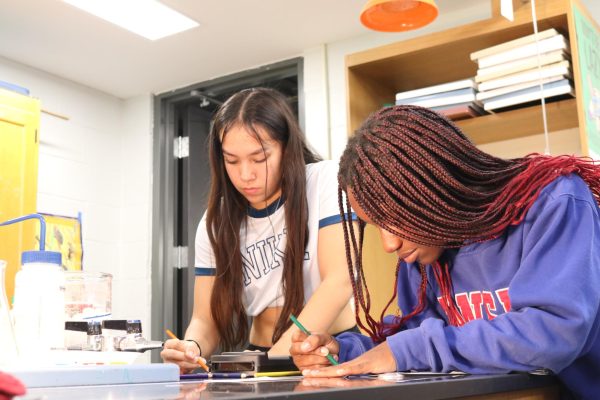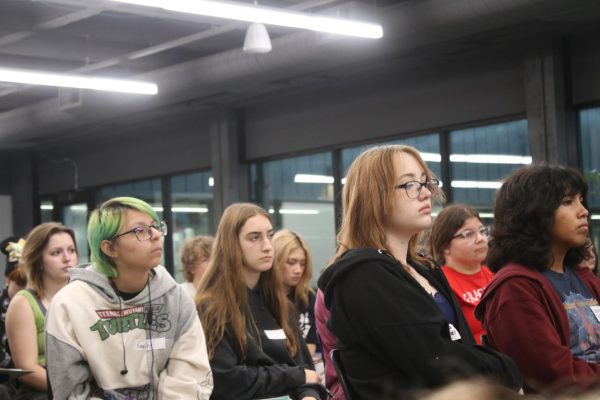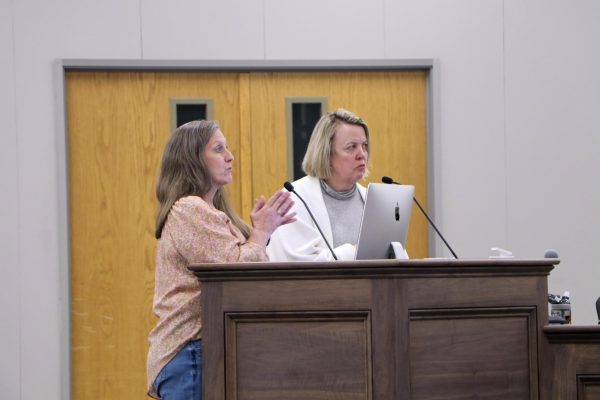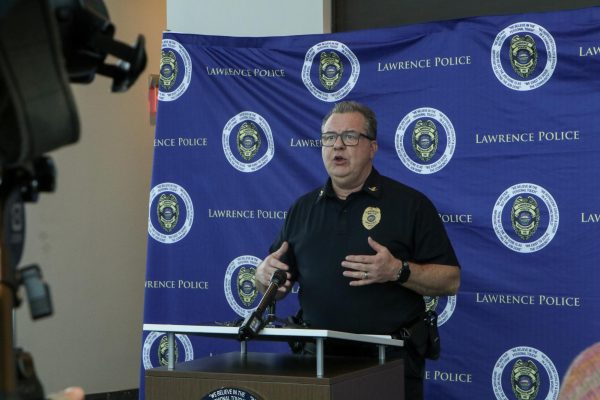Spring play success despite limited rehearsal time
May 18, 2018
The cast of the student-written play had a lot to stress over the night before the show.
With time running short, the 20-plus students involved in “You Have Nothing to Worry About” only got the chance to rehearse the entire show once before opening on April 13.
“I feel like this was probably the most — if not one of the most — under-the-wire, down to the last minute shows I’ve ever done,” theater sponsor Jamie Johnson said. “I mean it was nobody’s fault. There was a wave of sickness that came through… There was that trip where people were gone… It was just kind of a bunch of things that contributed, too. That’s something I always try to avoid because I don’t want it to feel stressful.”
“You Have Nothing to Worry About” ran April 13, 14 and 15 and focused on security. It touched on subjects like anxiety, gun control, racism and the government watching through computers.
The play opened with an overture performed by Satori Good on the bass and Jack Foster on the cello. Foster auditioned for the play with a piece on his cello, and went on to write almost all of the music for the play, using some sampling from the song Five Variants of Dives and Lazarus by Ralph Vaughan Williams. From the first rehearsal, the cast planned to have music and had the idea of opening with an overture.
“I’ve been mainly transposing music from movies and video games for a couple years but I hadn’t been really serious about writing until the past six months maybe,” Foster said. “I decided to start by writing an overture with a couple different themes and then using the different themes from the overture to write interlude music and underscore music.”
The original idea of the play was going to be much more linear, following the story of a town at the turn of the century that was about to get street lights for the first time, and the fear of losing privacy at night.
“We liked this idea of something Paul [Loupe] brought up called the moontowers, which was kind of the advent of street lights,” senior Allison Day said. “Basically we were going to talk about that in regards to privacy and security. People were worried about their privacy and suddenly things being lit at night and what they would do when it felt like people were looking in on them.”
After three to four weeks of writing and focusing on the idea of moontowers, Day said the group was feeling frustrated with the lack of passion behind the idea. One rehearsal, Johnson pushed the cast to move ahead, saying they didn’t seem to be fully invested in the idea, and cast members began rethinking their plans.
“When we left this rehearsal, I think the excitement of when we first started had come back and we actually had a path we were following rather than just making decisions half-heartedly,” Day said.
It was also this rehearsal where cast members decided to follow a common theme as opposed to a common story. They decided to focus on security, and divided up scenes based on what was important to each member.
Scenes formed based on interest. Gun violence was a topic on many people’s minds, and five or six students grouped together and collaborated on a scene that compared guns to volcanos. In the scene, a student fell into an acid pool at Yellowstone Park due to poorly maintained safeguards, like fences. The solution given to protect tourists from falling into volcanoes was to arm park rangers with more volcanoes.
“The volcano scene, I mean if you’ve seen it, is very poignant and on the nose about gun violence,” senior Rollin Love said. “I feel like it was a good satirical way to show how ridiculous the conversation is sometimes and how over the top and outlandish discussions and legislation are.”
Another prevalent topic was racism. In a scene entitled “Racism Rehab,” racist people who had died went to a rehab to overcome their racist ways and become worthy of entering heaven.
“The racism scene I felt was really important because it showed people the different ways you can be racist,” Love said. “It’s not just, ‘Oh I hate this group’ or ‘Oh I hate that group.’ There’s subtle ways like erasing culture and and fetishizing some groups and stuff like that.”
Senior Liam Romano, who has been involved with theater every year at LHS, was in charge of building and designing the set, as well as running tech during the play. Because the play was in the new black box as opposed to the auditorium, that presented unique challenges.
“The lighting and sound is a lot more limited,” Romano said. “We have no cyc, [the white backdrop used to display colors] so we were limited color wise. However these shows are usually not as technically demanding as others. We have complete control of the content so we don’t add anything that would be too out there.”
Other members of the crew include junior Adam Miles, who ran the light board, sophomore Sam Goddard ran sound, and senior Paul Loupe helped design and build the set.
One of the only big anxieties leading up to opening night was the lack of time. Due to the somewhat last minute theme change, the first full run through of the play didn’t happen until April 12, the day before opening night.
“It felt a little rushed and I think if we had had even an extra week it would’ve been helpful to have the time to learn lines and really solidify things,” Day said.
However, even with limited run-throughs Day feels the play was overall a success, and each idea was well-thought out.
“I think we really took the chance to tell the stories we wanted to, and I know that a lot of people did enjoy it,” Day said. “This show seemed very important and especially successful to me because I feel every scene has some big issue behind it. There wasn’t really any scene where it was just ‘Oh we had this idea so we’re just going to shove it in there.’ There was something ever real behind it and people took the time and care to actually develop it. I think it was well-done.”



